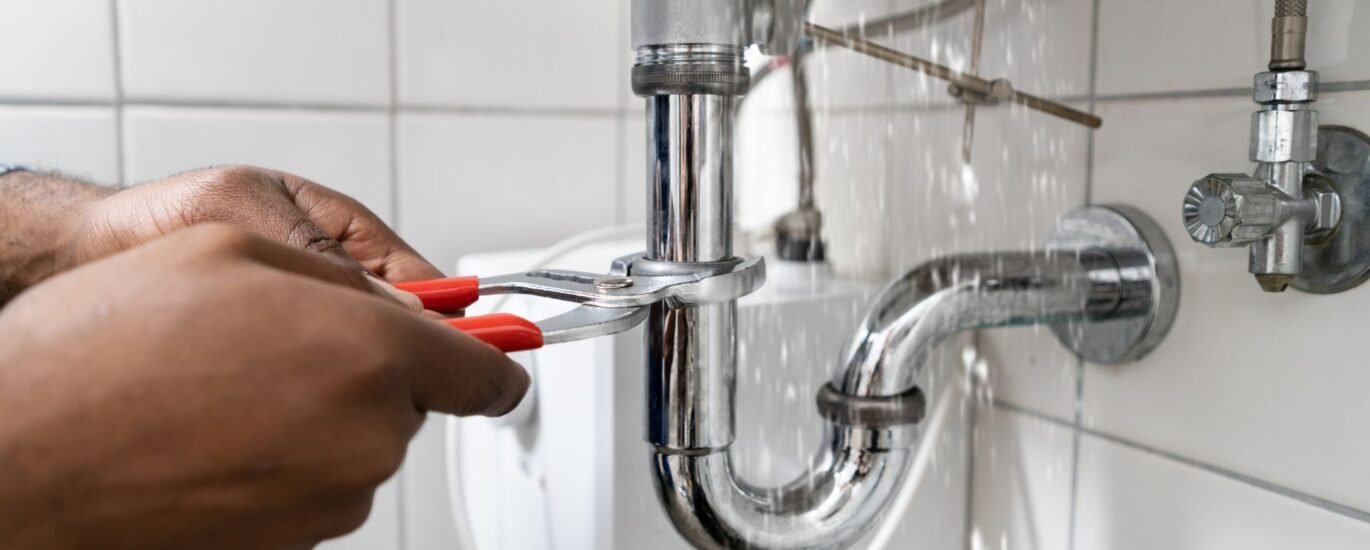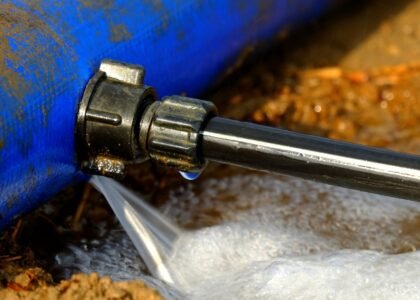Introduction
Slab leaks are one of those plumbing problems that creep up quietly. Hidden under your home’s concrete foundation, they can cause serious damage if not caught early. In this post, you’ll learn what slab leaks are, how to spot them early, and why it’s critical to act fast. Use this guide together with professional services like our slab leak detection to protect your home.
What Is a Slab Leak?
- Pipes under your home’s foundation (slab) carry water in and waste out.
- Over time, these pipes may crack, corrode, or shift due to soil movement.
- When a leak develops, water escapes beneath the slab, often unseen and unheard.
- The risk: structural damage, mold, flooring issues, and expensive repair work if left unchecked.
Early Warning Signs
Here are some subtle and not-so-subtle indicators:
| Sign | What You Might Observe |
|---|---|
| Spiking Water Bill | Without changing your usage, your monthly plumbing costs suddenly increase. |
| Sound of Running Water | Even when faucets and fixtures are off, you might hear water movement in flooring or walls. |
| Warm Spots on Floor | Especially with hot water lines—warm concrete areas where you walk. |
| Damp or Discolored Flooring | Carpets, tiles, or wooden floors showing moisture or staining. |
| Mold, Mildew, Musty Odor | Hidden moisture creates ideal conditions for fungal growth. |
| Drop in Water Pressure | When water escapes before reaching fixtures, pressure suffers. |
| Cracks in Foundation or Walls | Water undermines the soil, causing structural shifting. |
Why Early Detection Matters
- Prevents big damage: avoiding structural issues, ruined flooring, or wood rot.
- Saves money: corrective work becomes more intensive and costly over time.
- Health protection: mold & mildew can harm indoor air quality.
- Preserves property value: damage here affects resale.
How Professionals Detect Slab Leaks
Trained technicians use a multi-step, technology-aided process to locate leaks without tearing up your home. At A-Plus Plumbers Walnut Creek, for example:
- Initial consultation & inspection
- Sound/acoustic listening tools
- Thermal imaging
- Pressure testing
- Video camera pipe inspections
Each method helps reduce guesswork and makes repair work more precise.
What You Should Do If You Suspect a Slab Leak
- Keep track of any symptoms (like those above).
- Shut off main water supply if you notice obvious pooling or suspect major leakage.
- Call a professional slab leak detection service immediately.
- In the meantime: avoid running water unnecessarily, reduce damage, and move items off damp flooring or walls.
You can reach out via our Contact Us page to schedule a detailed leak check.
Prevention & Maintenance Tips
Even though slab leaks can’t always be prevented, you can reduce risk:
- Monitor your water bill regularly.
- Schedule periodic professional plumbing checkups.
- Keep landscaping in check—tree roots are frequent culprits.
- Maintain consistent indoor temperature to avoid extreme soil expansion or contraction.
- Seal foundation cracks and control moisture around your home’s perimeter.
Conclusion
Slab leaks may start quietly, but their consequences are loud and costly if ignored. Recognizing early warning signs, understanding detection methods, and acting swiftly are your best defense. For expert help, turn to slab leak detection specialists like us. If you notice anything unusual around your home—or just want peace of mind—contact us right away.



